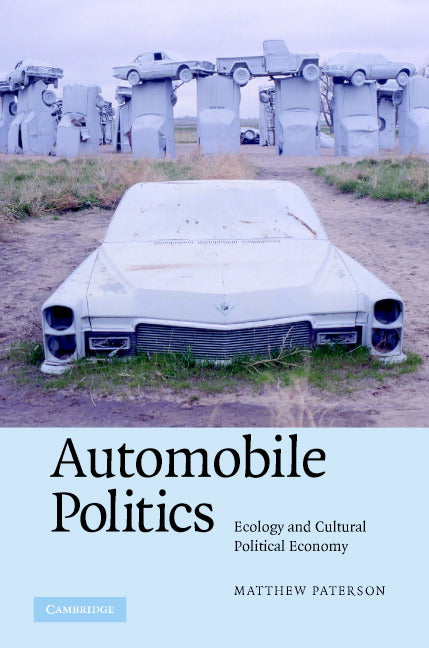Freshly Printed - allow 4 days lead
Couldn't load pickup availability
Automobile Politics
Ecology and Cultural Political Economy
Examines the role of the car in contemporary society and its contribution to environmental problems.
Matthew Paterson (Author)
9780521870801, Cambridge University Press
Hardback, published 19 July 2007
284 pages, 6 b/w illus.
23.5 x 16 x 2 cm, 0.584 kg
'This is a horrifically compelling account of why, despite the obvious need for alternatives, global development centres on the car. … anyone seeking deeper analysis of the car's dominance will not be disappointed.' London Cyclist
The car, and the range of social and political institutions which sustain its dominance, play an important role in many of the environmental problems faced by contemporary society. But in order to understand the possibilities for moving towards sustainability and 'greening cars', it is first necessary to understand the political forces that have made cars so dominant. This book identifies these forces as a combination of political economy and cultural politics. From the early twentieth century, the car became central to the organization of capitalism and deeply embedded in individual identities, providing people with a source of value and meaning but in a way which was broadly consistent with social imperatives for mobility. Projects for sustainability to reduce the environmental impacts of cars are therefore constrained by these forces but must deal with them in order to shape and achieve their goals.
1. Introduction: (auto)mobility, ecology, and global politics
2. Automobility and its discontents
3. Don't stop movin': the pro-car backlash
4. Automobile political economy
5. The car's cultural politics: producing the (auto)mobile subject
6. Swampy fever, Mondeo man
7. Greening automobility?
8. Conclusions'.
Subject Areas: The environment [RN], Geography [RG], Political economy [KCP], Politics & government [JP], Sociology [JHB], Cultural studies [JFC]


